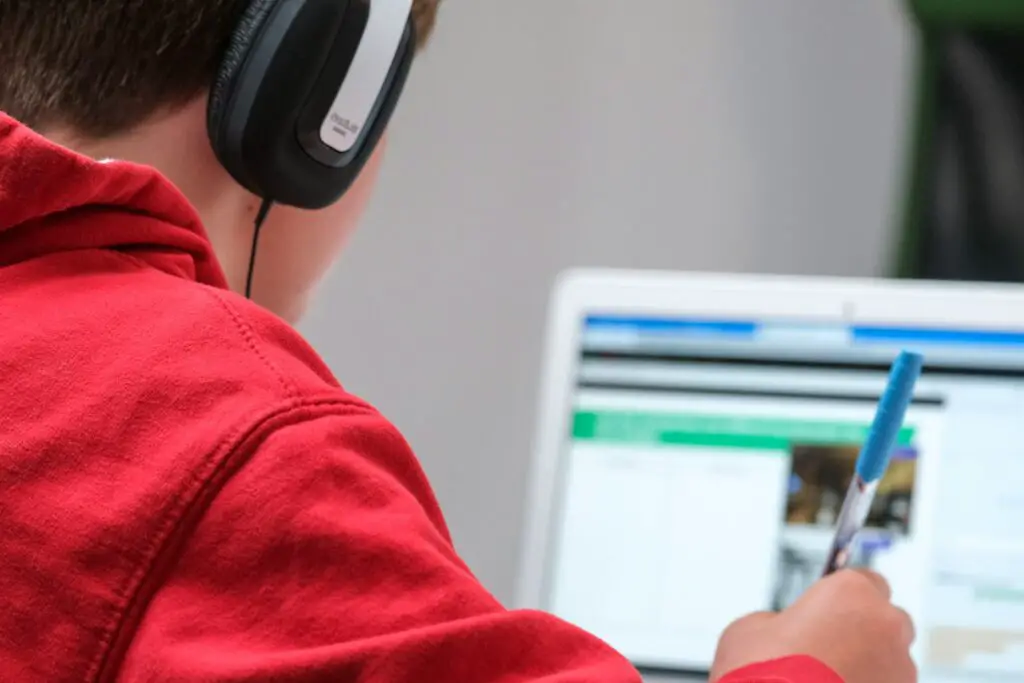Education has gone through a lot of changes over the past few decades, but especially in the last five years or so. A combination of technological advancements, shifts in socio-cultural standards and expectations, rising prices both generally across the nation as well as with the overinflated value of college programming has forced many people to rethink the traditional approaches to post-high school educations. While the worst of that unique situation is behind the world’s economy, the changes in schooling procedures that were the result of COVID restrictions gave power to what had been the long and slowly emerging idea that online education may be a wonderful alternative to traditional classroom settings.
These ideas, in combination with technological advancements spurred the adoption and implementation of novel and innovative ideas for remote, online learning platforms.
Online educational platforms have taken hold and continue to make up a notable percentage of post-secondary education. Despite the many forms and options inherent in the more flexible educational format, there are many people who find online learning harder. Though this cannot and should not be taken as a blanket statement of fact for all programs, colleges, or even the wide variety of people who are in attendance, there is still a significant enough percentage of people who would identify with online programming being more stressful than traditional classroom settings.
The following contains an elaboration on some of those potential reasonings and a collection of ideas for how remote students can better alleviate the stresses that may come with being enrolled in an online education.

Challenges Typical of Online Education
Human beings are social creatures. The benefits that have been proven over millennia which come in combination with social interactions are vast and weaves itself into every aspect of culture. Educational forums are no exception. Setting aside for a moment the broad spectrum of personalities, learning styles, cognitive abilities, skill sets and interests which are astronomically diverse, the ways in which people learn can be difficult to effectively systematize.
Obviously, this has been done for hundreds of years and institutions and organizations will continue to attempt to effectively reach, teach, and empower as many students as possible. However, there is something powerful in the consistency that emerges when considering the effectiveness of education standards when they encompass and support in-person learning.
Perhaps the most significant and common complaint that may be made about online educational formats is that an online education lacks the diversity and empowerment that comes from in-person interactions as in traditional settings. As a critique and a category of complaint this has merit for a number of reasons, only some of the more obvious and foundational elements will be mentioned here.
Depending on the subject matter, having to teach oneself the required information needed to pass a test or exam is typically limited in formatting and can become very difficult. Reading hundreds of pages of information, watching videos, and having to make sense of assignment requirements means that the remote student is on their own.
For some, being left alone to study in a quiet place at their own pace is conducive to better retention and eventual test scores; for others, this can mean increased stress levels and worry when struggling to grasp a concept. This is creating a more difficult and often, delayed ability to clarify necessary information having to resort to emails, phone calls, or re-working information before finding the correct interpretation.
Without face-to-face interactions with peers and teachers, getting prompt answers to things can make things very stressful. It is common problems like this that are helpful to considering what to look for in a nursing program.
On top of all that increased screen time exposure leads to unique expressions of fatigue on the mind and body. The combination of all of these elements can make staying motivated a real problem, none of which are conducive to high performance.
Some Strategies to Alleviate Stress When Remote Learning
- Finding and Establishing Support Communities- An online class means that there are other students who are enrolled in the course. If the class or campus is big enough, there are likely plenty of other people that can be found to meet up for things like study groups. More minds make it easier to understand complex information and can just be an added boost to mood.
- Figuring out Best Communication Channels- All responsible and experienced teachers will understand that students will need to ask questions. An online teacher is no different, and as such should make themselves easily available to communicate with in a timely manner. While it is the teachers job to make these channels available, it is the students responsibility to utilize them but is a clear point as to why technology cannot replace teachers.
- Establish Routines and A Schedule- In an online program a teacher, friend, or peer is unlikely to be there to keep someone on task. Therefore, it is essential that online students become intentional and disciplined in creating and maintaining routines that are supportive to their educational goals. A consistent, week-to-week schedule can help.
MindOwl Founder – My own struggles in life have led me to this path of understanding the human condition. I graduated with a bachelor’s degree in philosophy before completing a master’s degree in psychology at Regent’s University London. I then completed a postgraduate diploma in philosophical counselling before being trained in ACT (Acceptance and commitment therapy).
I’ve spent the last eight years studying the encounter of meditative practices with modern psychology.
